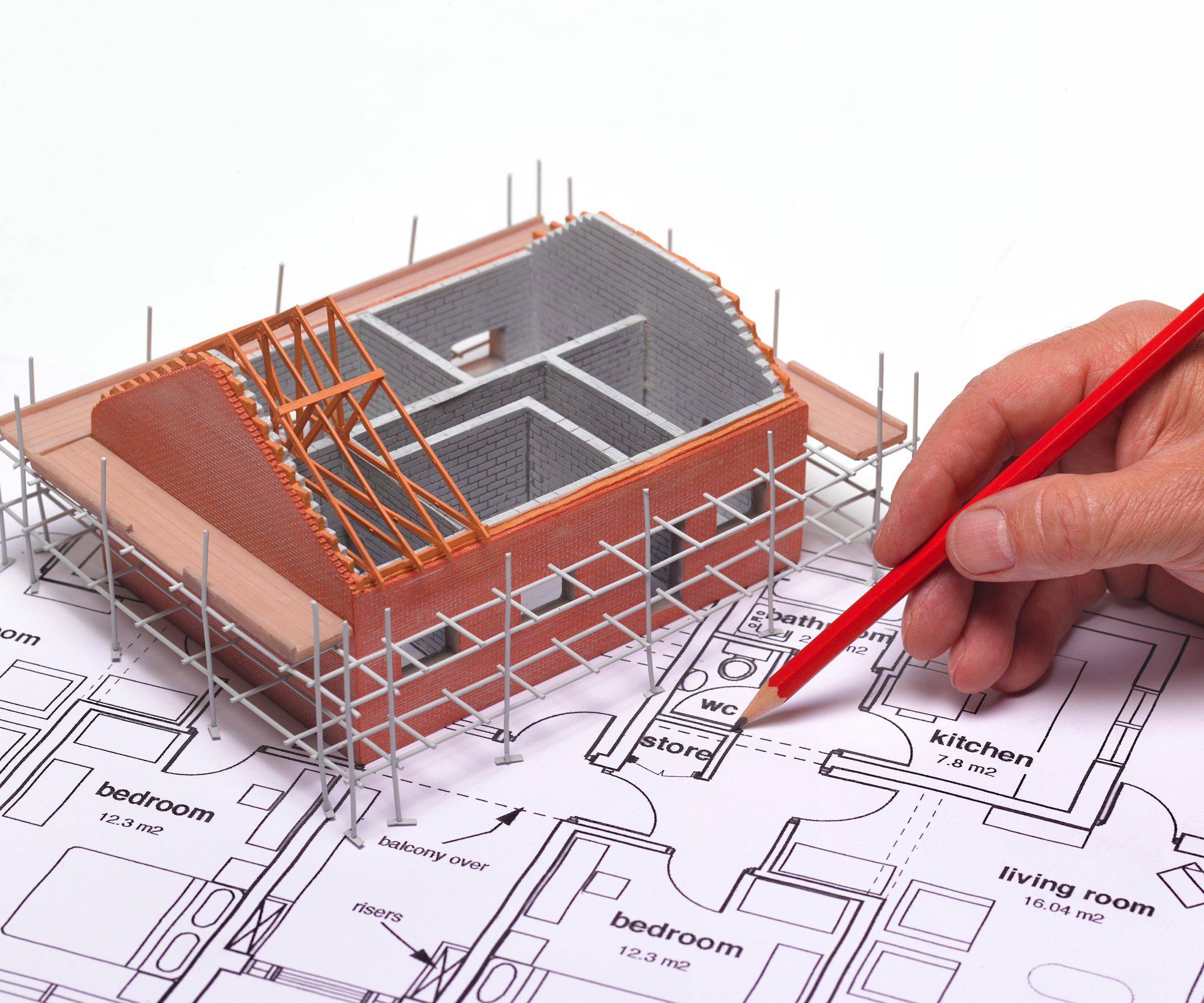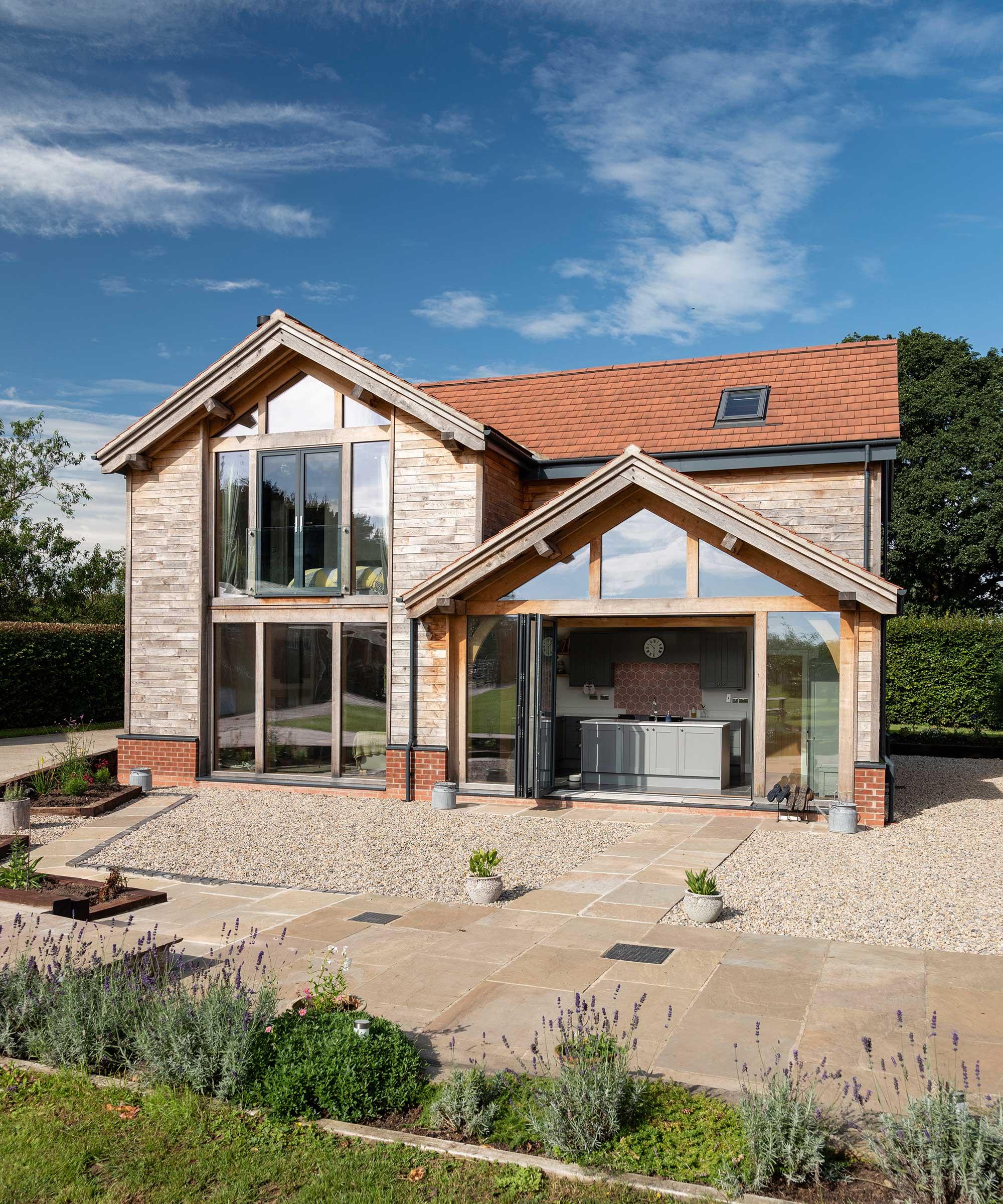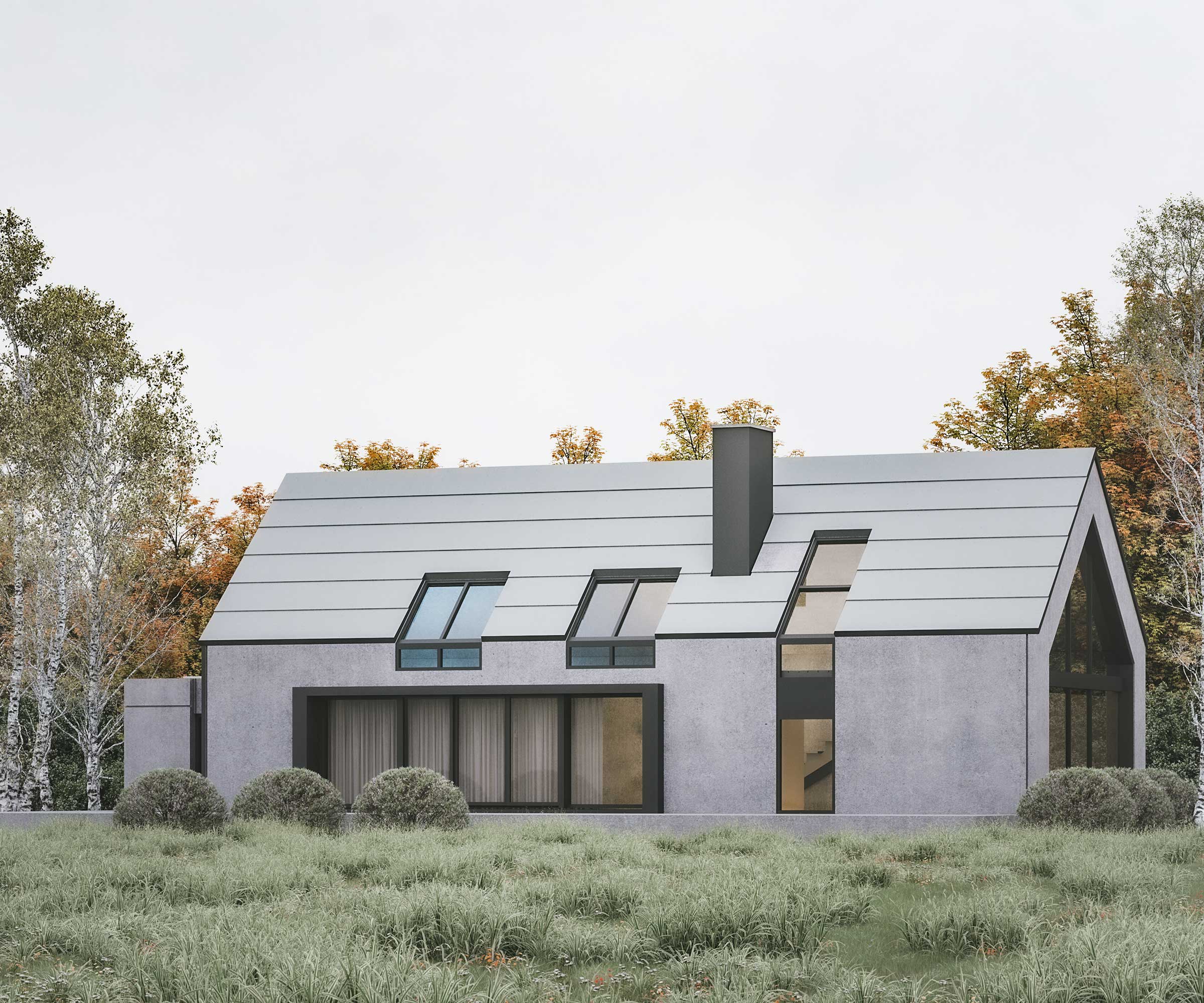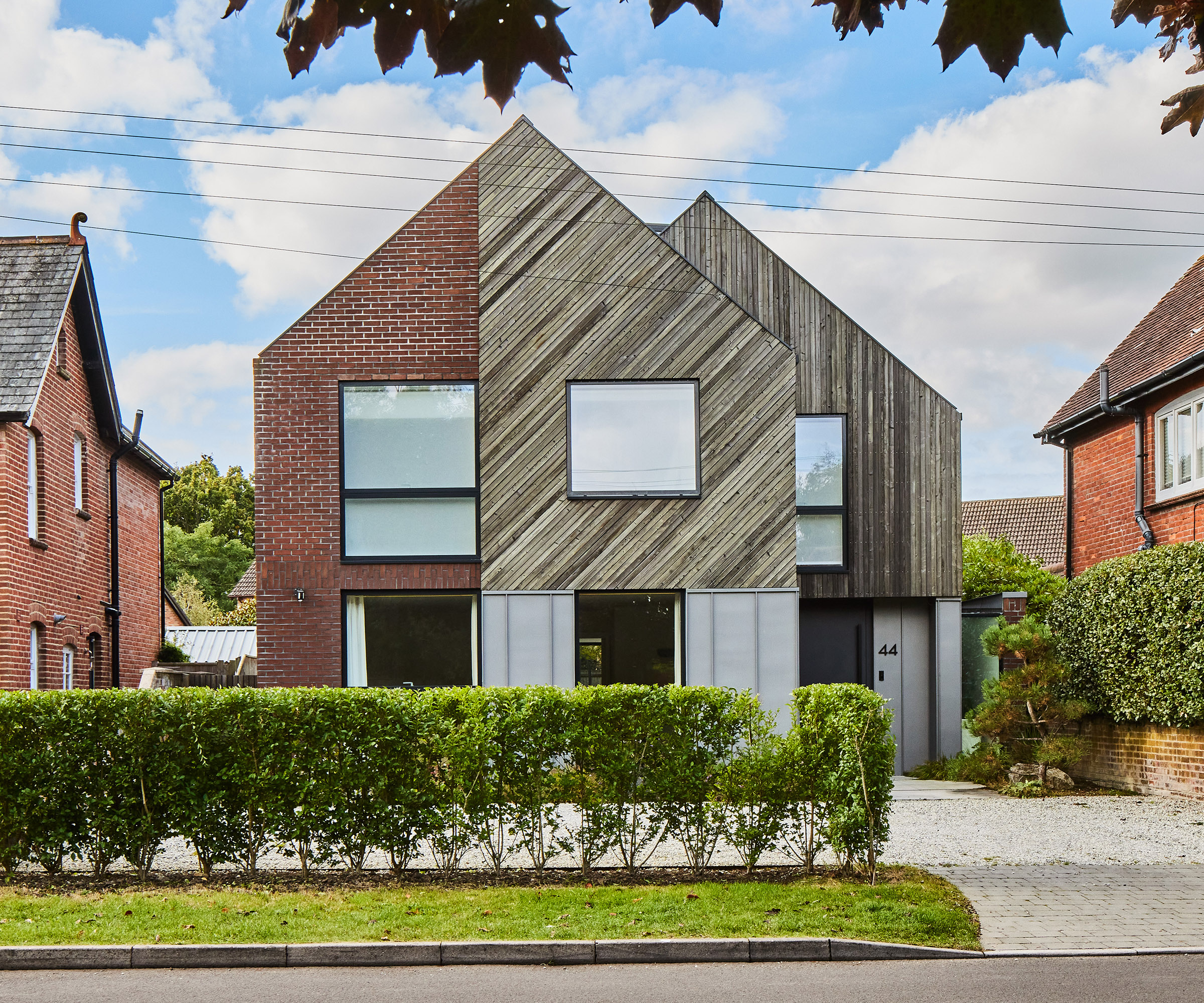I'm a planning permission expert and this is how to win over a planning committee and secure approval for your project
Understanding the ins and outs of how planning committees work can prove the difference between the success and failure of your planning application

A planning committee could get the deciding vote on whether or not you get permission for your self-build or an extension, so it's vital to know what they do.
Understanding how these committees work, when and why your planning permission application might go before one, and how to prepare can help you secure approval.
As an experienced planning consultant, I know what happens at a planning committee meeting and have successfully secured permission for a number of my clients via this route.
What is a planning committee?
A planning committee is a group of elected local councillors responsible for debating and deciding on certain planning applications. Every property falls within an electoral ward represented by specific councillors.
Local planning authority committees are the formal decision-making bodies for planning applications. However, the majority of decisions are delegated to planning officers, meaning they are determined without councillor involvement.
Parish councils often have their own planning committees, but these are only consultative bodies and do not make final decisions. While their support isn’t essential, having it can significantly help your case when it comes to getting planning permission approval.

When might your application go to a committee?
Most applications are decided by planning officers under delegated powers. However, if an officer intends to refuse your application, you might want to escalate the decision to the planning committee. The process of transferring decision-making from an officer to a committee is known as a ‘call-in’.
Before pursuing a call-in, it’s worth negotiating with the planning officer. However, if they are unwilling to reconsider their stance and you cannot or do not wish to modify your proposal, a committee decision may be your best course of action. And it’s definitely worth considering before an appeal, as these can take much longer and could be more costly in terms of professional fees.
Planning committees can be particularly valuable in cases where planning officers have repeatedly rejected applications, even after significant redesigns or additional justifications.
Officers can be reluctant to reverse their earlier positions, even when new evidence is presented. Councillors, however, often take a more pragmatic, commonsense approach and are not afraid to question their officers’ recommendations. In my experience, many committee call-ins result in approvals, even after multiple refusals by officers.

How to get your application decided by a committee
Each council has its own rules for how applications can be referred to committee, detailed in a document known as the ‘scheme of delegation’. This sets out:
- Who can request a call-in (usually the ward councillor for the site, the parish council, or, in some cases, the chair of the planning committee)
- The grounds for requesting a call-in
- When a request must be made.
Timing is crucial, as some councils only allow call-ins at an early stage of the process, sometimes before an officer has confirmed their recommendation. If you miss this window, your only option might be to submit a new application then request a call-in from the start.
To maximise your chances, engage with the relevant councillors early on. If they understand your case and are sympathetic, they may be more willing to request a call-in.
Preparing for a planning committee
If your application is going to committee, preparation is key:
- Start by identifying which councillors sit on the planning committee and researching their views.
- You or your planning consultant should obtain a copy of the committee report, which outlines the planning officer’s recommendations. This will allow you to prepare a written rebuttal or send committee members key supporting materials before the meeting, such as drawings, photographs or bullet points countering the officer’s arguments.
- Decide who will speak in support of your application. Most committees allow public speaking, but time is limited – often just a couple of minutes for each speaker.
- Prepare a clear and concise speech for yourself or your planning consultant to make, addressing the key issues councillors are likely to focus on. It’s also useful to anticipate potential questions from councillors and have answers ready.
- While I advise my clients to make this speech themselves, I will of course help them write it, and if they don’t feel able or confident enough to deliver it, I will speak for them. Your ward councillor and the parish council will also have the chance to speak, so try to get them onboard before the meeting, too.
- Engaging directly with key committee members before the meeting (without asking them outright how they will vote) can be helpful in clarifying your position. However, bear in mind that councillors are legally required to keep an open mind until the meeting, so don’t push them into declaring their stance in advance.

What happens at a planning committee meeting?
Planning committee meetings often start with formalities such as approving previous meeting minutes and councillors declaring conflicts of interest. Your application may not be first on the agenda – the order is usually published a week in advance but the chair can alter it – so arrive before the meeting starts.
When your application is considered, the planning officer will present their report, followed by public speakers (both in favour and against) including you or your planning consultant, plus your ward councillors and/or a parish council representative. The committee will then debate the application, ask questions and vote on whether to approve or refuse it.
Planning committee decisions
The committee may conclude that they can’t decide on an application without a site visit, which you and your planning consultant will need to prepare for.
If planning permission is refused, speak to your planning consultant about the best next steps. You may have grounds for appealing the planning decision or you could submit a revised application addressing the formal reasons for refusal stated in the decision notice. Be aware that these may differ from the objections voiced by councillors during the meeting.
If your application is approved, the formal decision notice may take a few days to be issued. Don’t start any works until you receive it. Sometimes, further negotiations on planning conditions are required before consent is finalised so speeding ahead can be a big planning permission mistake.
Check the conditions carefully, particularly any pre-commencement conditions, which need further approvals before work begins. If any such conditions weren’t properly imposed (for example, if you didn’t agree to them beforehand and/or if you weren’t properly consulted about them), they may be invalid and open to challenge.
Consulting a planning consultant can help determine whether a condition can be amended or removed.

Success story
It is often worthwhile using the committee call-in card on contentious or long-running planning ‘disputes’. Some of my clients have asked for my help after a series of knockbacks from planning officers, even after multiple redesigns and/or additional reassurances and/or justifications being given.
One of my clients, in the Home Counties, wanted to extend a small barn that had already been converted into a house. It was near a listed building and planning officers at the district council repeatedly refused various designs that were presented before I got involved, on heritage grounds, i.e. related to the impact on the listed building, despite it being quite some distance away.
We therefore knew we’d face more opposition from the planning department, so I helped prepare and submit a new application, with additional heritage justifications, but importantly we started by fully engaging with both the parish council and the elected district councillors for the ward, asking them from the start to request a committee call-in.
After a site visit by parish councillors and one of the ward councillors, they made the formal call-in request, so the application went to the district council’s planning committee.
As expected, planning officers continued with their objection so at the committee my client gave a detailed speech, drafted with my help, asking for common sense to prevail. The councillors on the committee agreed and approved the application almost unanimously.
Whether you're planning a self-build or need planning permission for an extension, planning committees can be a powerful tool for self-builders and homeowners facing resistance from planning officers.
With the right strategy, preparation and engagement with councillors, a committee decision can significantly increase your chances of gaining planning approval.
If you find yourself navigating this process, seeking advice from a planning consultant can make all the difference in maximising your chances of success.
Get the Homebuilding & Renovating Newsletter
Bring your dream home to life with expert advice, how to guides and design inspiration. Sign up for our newsletter and get two free tickets to a Homebuilding & Renovating Show near you.
Simon Rix is a professional planning consultant, who began his career working in local government in the 1990s. He was a council officer and later an elected councillor, so he knows how the planning system works from both sides. He went on to set up Planix.UK Planning Consultants Ltd; a consultancy company that advises self builders, home extenders and those taking on small to medium-sized building projects on planning permission.

